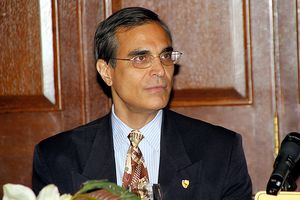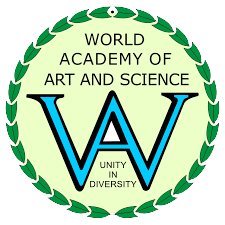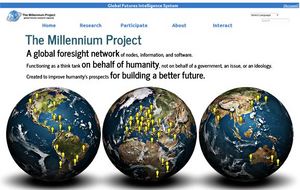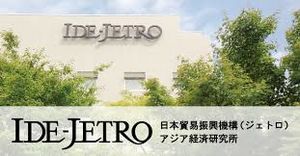José Cordeiro







José Luis Cordeiro is an engineer, economist, futurist, and transhumanist. He was born in Caracas, Venezuela from European parents who emigrated from Madrid during the Franco dictatorship. Educated in Europe and North America; he has studied, visited and worked in over one-hundred and thirty countries on five continents.[2]
Education[править]
"José studied at the Massachusetts Institute of Technology (MIT) in Cambridge, USA, where he earned his Bachelor of Science (B.Sc.) and Master of Science (M.Sc.) degrees in Mechanical Engineering, with a minor in Economics and Languages. His thesis consisted of a dynamic modeling for NASA’s Freedom Space Station (the International Space Station of today). He later studied International Economics and Comparative Politics at Georgetown University in Washington, USA, and then obtained his Masters of Business Administration (MBA) at the Institut Européen d’ Administration des Affaires (INSEAD) in Fontainebleau, France, where he majored in Finance and Globalization.
During his studies, he worked with the United Nations Industrial Development Organization (UNIDO) in Vienna, Austria, and with the Center for Strategic and International Studies (CSIS) in Washington, USA. He started his doctoral work at MIT, which he continued later in Tokyo, Japan, and finally earned his Ph.D. at Universidad Simón Bolívar (USB) in Caracas, Venezuela. He is a lifetime member of the Sigma Xi (ΣΞ, Scientific Research) and Tau Beta Pi (ΤΒΠ, Engineering) Honor Societies in North America, is also a honorary member of the Venezuelan Engineers College (CIV), and his name has been included in the Marquis Edition of Who’s Who in the World."
- - From his Biography at Lifeboat Foundation[3]
My friend and colleague,“...is also a lifetime member of Beta Gamma Sigma, the international business honor society for students graduated with honors in a AACSB-accredited school, that is, from the top 5% of business school programs around the world.”
- - Andrés Grases, from a comment in the Facebook Group H+Pedia February 18, 2019
Political career[править]
Fellow, World Academy of Art and Science[править]
"The unprecedented speed and rate of change of globalization, technological development and dissemination and social evolution are raising fundamental questions and generating new types of challenges and complexities that express in terms of climate change, financial crises, skills gap, widening inequalities, immigration, increasing insecurity, and other fundamental doubts about the future...the challenges and human responses to them and what needs to be done to moderate the consequences of rapid technological change, mitigate its disruptive impacts and maximize its positive potential derived from the increasing scientific, technological and organizational knowledge and capabilities we possess in the 21st century."[4]
Director, The Millennium Project, Venezuela Node[править]
"The 15 Global Challenges provide a framework to assess the global and local prospects for humanity. Their description, with a range of views and actions to addressed each, enriched with regional views and progress assessments are updated each year, since 1996. A short overview is published in the annual State of the Future, while continuous updates and details are available on the Global Futures Intelligence System website: [5]
- - From the Projects/Challenges page on the Offical Website
Founding Executive Director, Red Iberoamericana de Prospectiva, RIBER[править]
"This Node, coordinated by PROSPEKTIKER, has the collaboration of LKS, the MONDRAGÓN Corporation and the Strategy Office of the Gipuzkoa Province Council. As for its goal, in a participatory way, it is the promotion of the joint reflection of institutions and experts groups about the already identified 15 great challenges, at global level."
Founding Energy Advisor, Singularity University, NASA Research Park, California[править]
"...he is a professor, founder and researcher of Singularity University, a research center created by NASA, Google and other companies, which is located in the NASA Research Center , in Silicon Valley, where they investigate how to solve problems related to health, nutrition, poverty, human education through technology.
- - From his Biography at VIDA+ Foundation[6]
“Thanks for coming, I got a good turnout. Standing room only. (pause) I’ve known Jose for many years and most notably...starting from the beginning, which is about seven years ago, we started organizing Singularity University...and has helped developed the concept and the organization, heads up our relationship with Latin America.”
- - Ray Kurzweil, Ray introduces Jose, Talks at Google, October 2014[7]
Vicechair, HumanityPlus[править]
"Human enhancement, both therapeutic and selective, challenges the normal status and aims to expand human capabilities that further human physiological functions and extend the maximum life span. External devices such as smartphones, smartwatches, wearable biomonitors, Google glasses, etc. are all expanding human capabilities. In the field of medical technology, the cochlear implant and bionic eyes have broken through the glass ceiling on biological determinism. Regenerative medicine, stem cell therapies, smart prosthetics, genetic engineering, nanomedicine, cryonics, nootropics, neuropharmacology, have already done this."
- - From the Mission page on the main website[8]
Fellow, Institute of Developing Economies (IDE - JETRO)[править]
"The Institute of Developing Economies (IDE) aims to make intellectual contributions to the world as a leading center of social-science research on developing regions. We accumulate locally-grounded knowledge on these areas, clarify the conditions and issues they are facing, and disseminate a better understanding of these areas both domestically and abroad. These activities provide an intellectual foundation to facilitate cooperation between Japan and the international community for addressing development issues."
- - From the About page on the Official Website
Invited Professor, Moscow Institute of Physics and Technology, Russia[править]
"MIPT is one of the leading Russian universities in the areas of physics and technology. The university holds a reputable position in the country and abroad for qualified graduate training. Students and graduates of MIPT are representatives of an elite circle who, thanks to their interdisciplinary scientific surroundings, are able to fully realize their potential."[9]
- - From the Offical Website
Founder and President Emeritus, Sociedad Mundial del Futuro Venezuela[править]
(www.FuturoVenezuela.net)
Philosophy and Politics[править]
Cordeiro has been an advocate of sound monetary policy and dollarization in Eastern Europe and Latin America[10][11]. His 1999 book La Segunda Muerte de Sucre provided academic backing for the change from the sucre to the dollar as the currency in Ecuador, where he is regarded as one of the thought leaders of this transformation.[12]
In 2009, Cordeiro spoke at the European Futurists Conference in Lucerne about the concept of 'Singularity': "a not-too-distant moment when artificial intelligence overtakes the capabilities of the human mind - the point when we are going to merge with machines". As a teaching fellow of the Singularity University, he added that "the purpose of Singularity University is to prepare humankind for this transformation".[13]
Cordeiro coined the term 'Energularity' to refer to “the biggest change in the largest industry on our planet... the Energy industry’s shift from fossil fuels to solar, wind, geothermal or fusion”. He also coined the term "Benesuela" as a contrast to "Venezuela" in reference to the educational situation in that country.[14]
In a set of forecasts about Latin America in 2030, Cordeiro and the Millennium Project highlighted two extreme scenarios: "God is Latin American" and "Disintegration in Hell".[15]
He advises audiences to “Forget flying cars and robot butlers… the future will be a far more interesting place”.[16]
Cordeiro has been writing a fortnightly opinion column in El Universal, the largest Venezuelan general newspaper, since 1996.
Books[править]
- El Desafio Latinoamericano (1996)
- El Gran Tabu Venezolano: la desestatizacion y democratizacion del petroleo (1998)
- The Great Taboo (1998)
- Benesuela vs. Venezuela: el combate educativo del siglo (1998)
- La Segunda Muerte de Bolivar... y el Renacer de Venezuela (1998)
- La Segunda Muerte de Sucre... y el Renacer del Ecuador (1999)
- Pesos o dolares? (2000)
- El desafio latinoamericano y sus cinco grandes retos (2007)
- Constitutions Around the World: A Comparative View from Latin America (2009)
- Telephones and Economic Development: A Worldwide Long-Term (2010)
- Latinoamérica 2030: Estudio Delphi y Escenarios (2014)
- La Muerte de la Muerte: La posibilidad científica de la inmortalidad física y su defensa moral (2018)
External links[править]
- Mr. Cordeiro's Homepage
- Jose Cordeiro Blog Futuristicamenta
- The Millennium Project
- Lifeboat Foundation Homepage
 José Luis Cordeiro on Wikipedia
José Luis Cordeiro on Wikipedia
Videos
- Singularity Summit: "The Future of Energy and the Energy of the Future"
- TEDxRio+20: "The future is not what it used to be"
- Talks at Google: "The Future of Technology and the Technology of the Future"
- Singularity Weblog: "Jose Cordeiro on Longevity and Cryonics Summit: The World Will Be A Better Place Tomorrow"
References[править]
- ↑ http://www.millennium-project.org/about-us/
- ↑ Cordeiro.org Homepage
- ↑ https://lifeboat.com/ex/bios.jose.luis.cordeiro
- ↑ CALL FOR PAPERS http://worldacademy.org/conference-page/call-papers-approaching-20-year
- ↑ GFIS https://themp.org.
- ↑ http://fundacionvidaplus.org/es/jose-luis-cordeiro-2/
- ↑ https://www.youtube.com/watch?v=5YKkcUcSpMU
- ↑ https://humanityplus.org/about/mission/ Humanity+ Mission
- ↑ https://mipt.ru/english/about/about-mipt/ MIPT Official
- ↑ Atlas Network: "Why Ecuador's Economic Future Depends on Retaining Dollarization"
- ↑ Zeljko Bogetic: "Full Dollarization: Fad or Future?"
- ↑ Vistazo: "¿Quiénes promovieron la dolarización en Ecuador?"
- ↑ https://eandt.theiet.org/content/articles/2009/11/news-1/
- ↑ https://www.singularityweblog.com/jose-cordeiro-on-singularity-1-on-1-the-energularity-is-near/
- ↑ 2010 State of the Future: "Future studies around the world"
- ↑ Talks at Google: "The Future of Technology and the Technology of the Future"